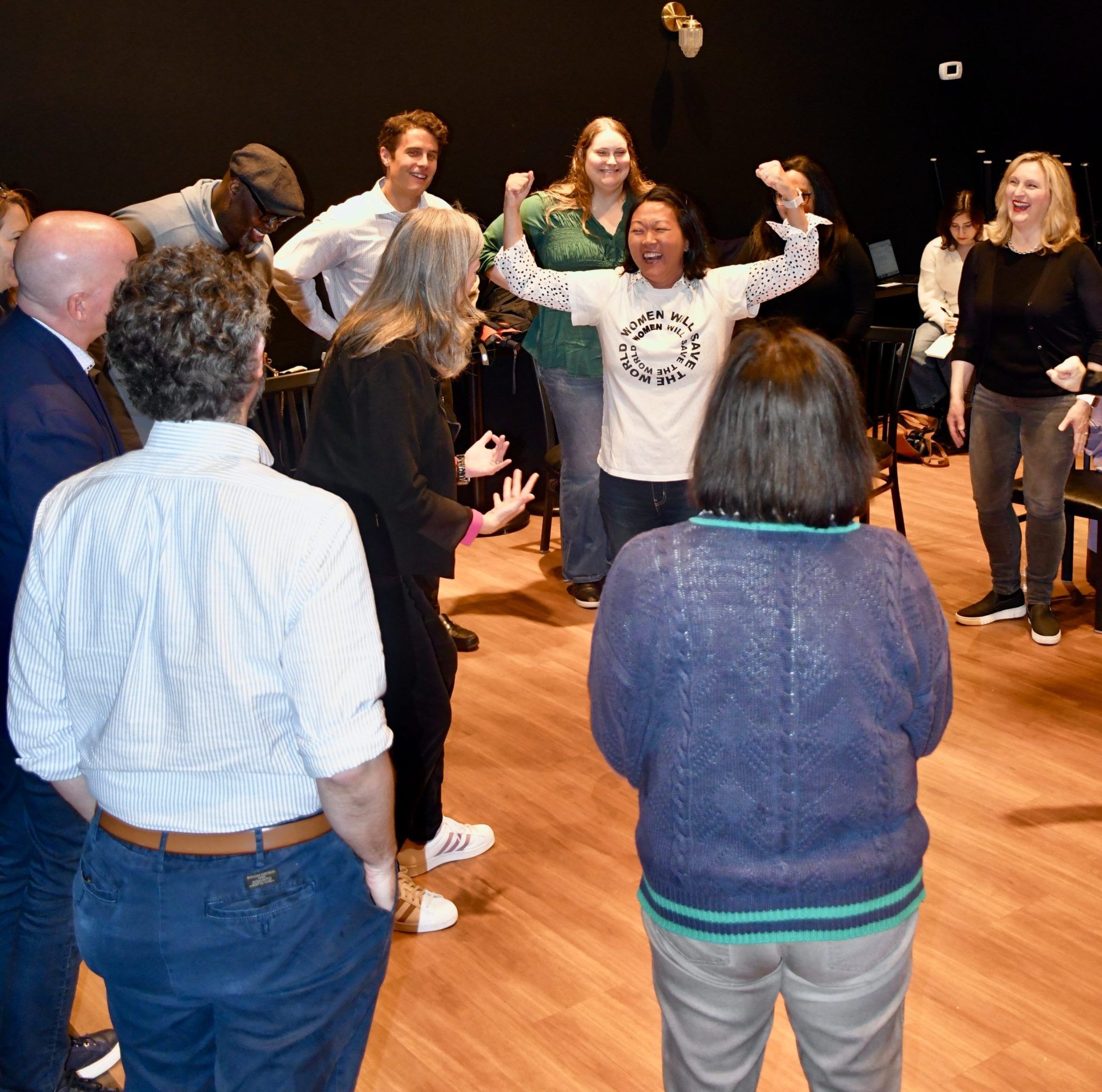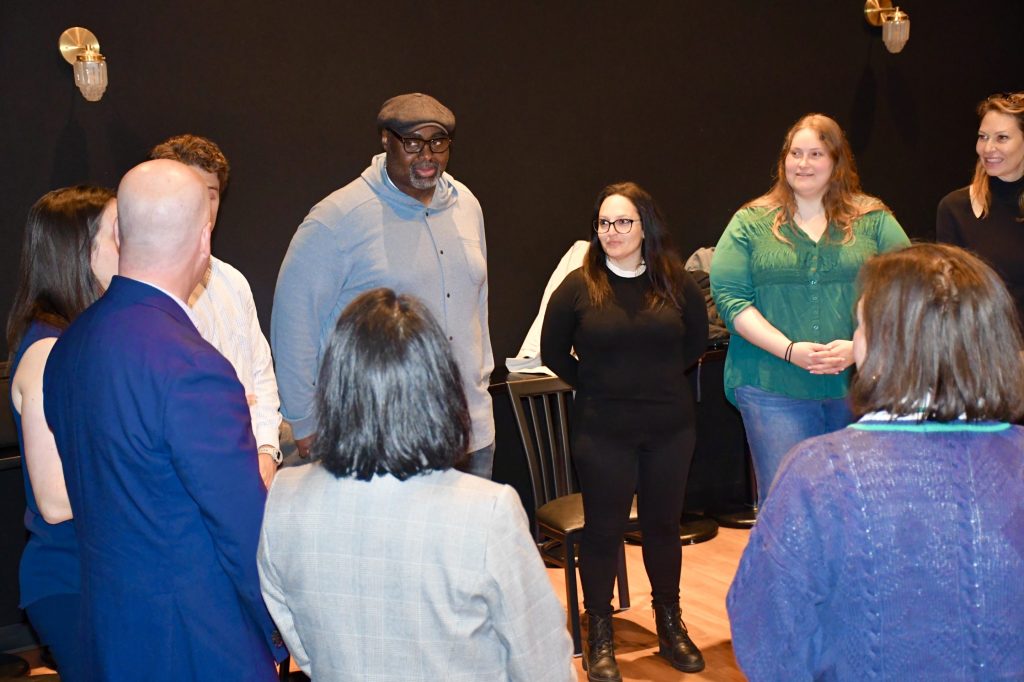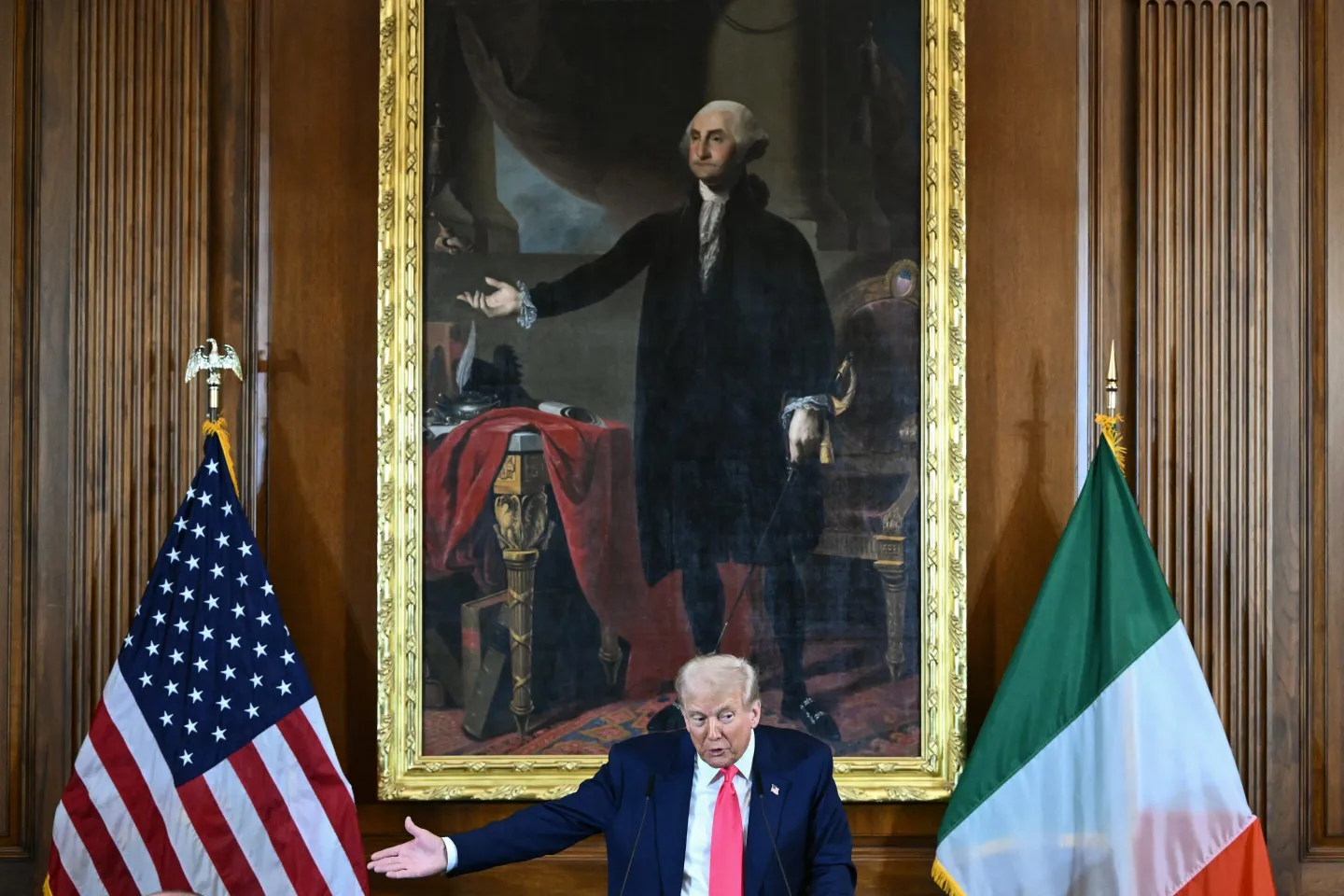## From “Whose Line Is It Anyway?” to the Corner Office: How Second City Taught Fortune 500 CEOs to Thrive
Forget stuffy boardrooms and power lunches. What if the secret to becoming a successful business leader wasn’t found in textbooks, but in the fast-paced, unpredictable world of improv comedy?
That’s exactly what a growing number of Fortune 500 CEOs are discovering. They’re trading in their suits for sneakers and stepping onto the stage at Second City, the legendary Chicago improv theater, to learn the skills that prepare them to navigate the ever-changing landscape of the modern business world.

Think quick on your feet, adapt to unexpected challenges, and build genuine connections – all while thinking creatively and staying true to your core values. These are the lessons learned at Second City, and they’re proving to be invaluable for the next generation of business titans.

Beyond the Stage: Implementing Improv Techniques in Your Workplace
Improv techniques, long a staple of comedy and theater, are increasingly being adopted by businesses as a way to improve communication, creativity, and employee engagement. The Second City, a renowned improvisational school and theater, has been at the forefront of this trend, offering workshops and training programs for companies looking to leverage the power of improv in the workplace.
For entrepreneur Rossanna Figuera, owner of Wafels and Dinges, a New York-based Belgian waffle company, attending a Second City workshop was a game-changer. “I think there was a lot of freedom to make mistakes,” she says. “Honestly, it felt a little bit liberating.” Figuera, who oversees food trucks and five brick-and-mortar locations throughout Manhattan and Brooklyn, found that the workshop’s focus on low-stakes risk-taking and creative problem-solving helped her develop new skills as a leader.

Interactive Exercises: Bringing Improv to Life in Meetings and Teams
Improv exercises, such as the ball-passing game used in Figuera’s workshop, are designed to simulate real-world scenarios and encourage active listening, creative thinking, and effective communication. These exercises can be adapted to fit the needs of individual teams and organizations, making them a valuable tool for improving workplace dynamics and collaboration.
- Disagreement exercise: a low-stakes debate on a topic such as tea vs. coffee, designed to improve interpersonal interaction and conflict resolution skills.
- Feedback simulation: a role-playing exercise where participants receive constructive criticism in different formats, teaching the importance of clear and respectful communication.
The Second City’s workshops don’t focus on teaching participants how to craft the perfect memo or create a PowerPoint presentation. Instead, they focus on developing human-centered skills such as vulnerability, decisive action, and active listening, which are essential for effective leadership and collaboration.

Cultivating a Culture of Creativity: Embracing Playfulness and Experimentation
A culture of creativity and playfulness is essential for driving innovation and growth in the workplace. Improv exercises and workshops can help foster this culture by encouraging employees to take risks, experiment with new ideas, and develop a growth mindset.
Samuel Monnie, a brand purpose consultant who attended the workshop, believes that improv can help him tune into what his clients are saying and what they really want. “To work with the brands and companies, we have to be good at listening,” he says. “And listen to understand, not just to respond.”

Real-World Examples: Companies Leveraging Improv for Growth and Success
The Second City has worked with a range of companies, from Meta and Uber to HubSpot, to develop programs that apply the core tenets of improvisation to drive organizational change. These programs have helped companies improve communication, collaboration, and employee engagement, leading to increased productivity and growth.
Improv techniques can be applied to a range of business challenges, including leading neurodiverse teams and leading authentically. By using improv exercises and workshops, companies can develop the skills and mindset necessary to succeed in today’s fast-paced and increasingly complex business landscape.

Level Up Your Leadership: The Gamestanza Approach to Improv Training
At Gamestanza, we believe that improv techniques can be a powerful tool for leaders looking to improve their communication, creativity, and collaboration skills. Our approach to improv training is designed to help leaders develop the skills and mindset necessary to succeed in today’s fast-paced and increasingly complex business landscape.
Gamified Exercises: Turning Improv into an Engaging Learning Experience
Our gamified exercises are designed to make learning improv techniques fun and engaging. By using interactive and immersive experiences, we help leaders develop the skills and confidence necessary to succeed in the workplace.
- Improv challenges: interactive exercises that test leaders’ skills in areas such as communication, creativity, and collaboration.
- Team-building exercises: immersive experiences that help leaders develop the skills and mindset necessary to build high-performing teams.
Our gamified exercises are designed to be adaptable to the needs of individual teams and organizations, making them a valuable tool for improving workplace dynamics and collaboration.
Building a Community of Improv Champions: Fostering Collaboration and Support
At Gamestanza, we believe that building a community of improv champions is essential for driving success in the workplace. Our training programs are designed to foster collaboration and support among leaders, helping them develop the skills and mindset necessary to succeed in today’s fast-paced and increasingly complex business landscape.
By joining our community of improv champions, leaders can access a range of resources and support, including mentorship, coaching, and networking opportunities.
Unlocking Your Potential: How Gamestanza Can Help You Master Improv Skills
At Gamestanza, we believe that everyone has the potential to become a master of improv skills. Our training programs are designed to help leaders unlock their potential, developing the skills and mindset necessary to succeed in the workplace.
Whether you’re looking to improve your communication, creativity, and collaboration skills or simply want to learn more about the power of improv, we’re here to help. Contact us today to learn more about our training programs and how we can help you unlock your potential.
Conclusion
The Unlikely Catalyst for Leadership Success
In a fascinating tale of how art meets business, a Second City improv class has emerged as an unlikely training ground for the next generation of business leaders. As highlighted in the article, this phenomenon is rooted in the transferable skills that improv training provides – creativity, adaptability, effective communication, and collaboration. By embracing the principles of improvisation, business leaders can become more agile, innovative, and responsive to the ever-changing demands of the marketplace. Key players such as Google, Amazon, and General Electric have already taken notice, incorporating improv training into their leadership development programs.
The significance of this trend cannot be overstated. In an era where business leaders are increasingly expected to think outside the box and drive growth through innovation, the skills honed through improv training are proving to be a game-changer. By cultivating a culture of creativity, experimentation, and risk-taking, companies can stay ahead of the curve and navigate the complexities of a rapidly changing business landscape. Moreover, the emphasis on collaboration and effective communication in improv training can help bridge the silos that often exist between departments, fostering a more cohesive and aligned organization.
As the business world continues to evolve, it’s likely that the intersection of art and business will become even more pronounced. The future of leadership development will likely involve a convergence of creative and analytical thinking, with business leaders seeking out new and innovative ways to cultivate the skills they need to succeed. By embracing the principles of improv, companies can unlock new levels of innovation, creativity, and collaboration, setting themselves up for success in an increasingly complex and competitive business environment. The future of leadership has arrived, and it’s unscripted.